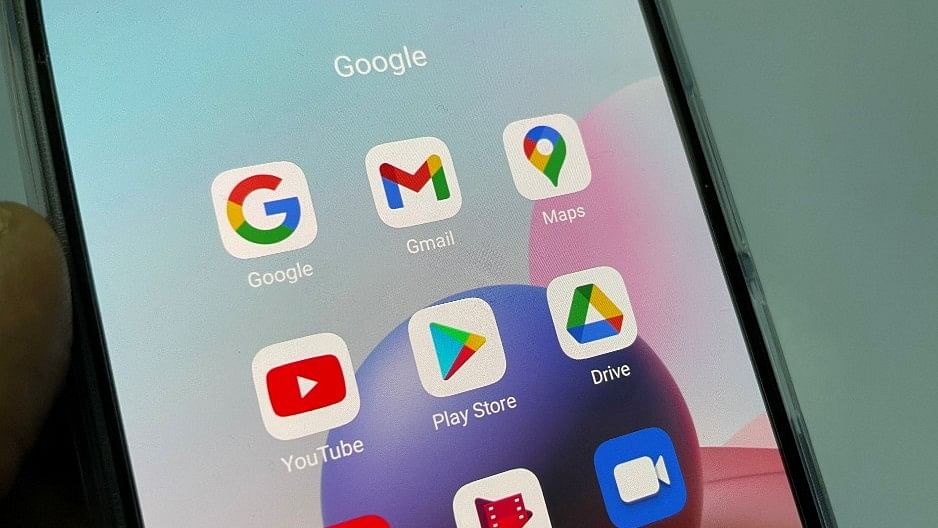
Google apps and Play Store.
Photo Credit: DH Photo/KVN Rohit
New Delhi: The digitally-native, app-first Gen Z cohort is assuming the centre stage in India's consumer markets by scripting "big shifts" in consumption trends, including the rise of quick commerce delivery and direct-to-consumer brands, according to a report by Bernstein.
Brands are seeking a deeper connection with this digitally-native, app-first generation that 'swipes up' for practically everything from social media to ride-hailing and food delivery.
Indian Gen Zs' are the world's largest, the report said about the cohort born into a digital age, that shops, works and eats online. Gen Z is the generation born between 1996 and 2010.
Indian Gen Zs make up 20 per cent of the world and about 27 per cent of India's population, it noted.
Gen Zs have become the "Swipe Up" generation considering the amount of time they spend on social media. They swipe up for practically everything - social media, ride-hailing, and food delivery, according to Bernstein's report on 'India Internet'.
Gen Zs are showing a preference for digital-first, new-age brands, it observed.
"We see big shifts in consumption trends dominated by GenZs...scale up of short-form content (Instagram, Youtube shorts)...preference for quick commerce delivery, 15-20 minutes (Blinkit, Zepto)... the emergence of D2C brands...discovering new food choices through food delivery apps (Zomato, Swiggy)," the report said, adding this has led to brands building deeper connections with GenZs.
Gen Zs have significant headroom in consumption, contributing to about 17 per cent of India's total consumption.
"GenZ has been not only a 'mobile-first' generation but also an app-first 'Swipe Up' generation. Time on smartphones has gone up 60 per cent," according to Bernstein.
Gen Z behaviour has helped scale up internet use cases driving monthly or daily active users (MAU/DAU) growth across app ecosystems.
"D2C brands are scaling faster versus traditional FMCG (3-4 years vs 10 years) led by the buying power of Gen Z customers. They have been able to target Gen Z customers through social media," the report said.
India is the world's largest footprint for Meta across their app universe (Facebook, Instagram, WhatsApp, FB messenger), it said, adding that quick commerce platforms like Blinkit and Zepto are enabling digital-first brands to reach GenZ customers, rapidly driving growth.
These broad trends are seen benefiting certain companies, which are digital-first and focus on large consumption areas.
The report highlighted that consumption behaviour, preferences and adoption differ between the three primary consumer cohorts 'Gen Zs, Millennials and Gen X.
"GenZ prefer categories which are app-first digitally-native and prefer categories like quick commerce, food delivery, short-form videos, EdTech, athleisure, co-living, new age D2C brands," the report observed.
This is very different from 'millennials' who prefer e-commerce, multiplexes, OTT, casual wear, and renting; and 'Gen X' who veers towards offline retail, malls, kiranas, office wear, Bollywood movies, buying houses/ real estate, or the baby 'boomer generation', which goes for kiranas, home food, traditional wear and are more inclined towards savings.
D2C brands are differentiating through specialised customer need identification, marketing, technology and operations. At the same time, multiple untapped niche categories with white space have presented a unique opportunity for D2C brands to thrive in India, as per Bernstein's report.